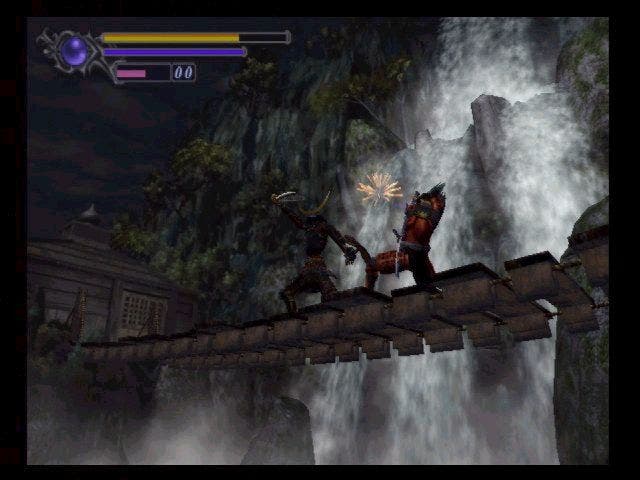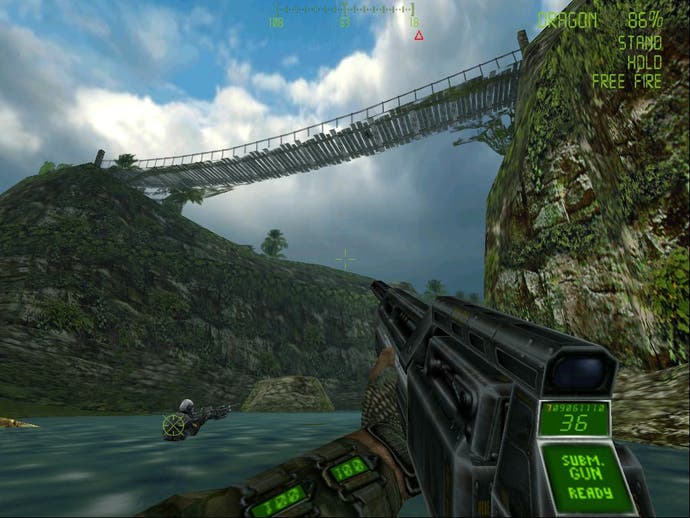Beige Box Blues
Article - why do PC owners get treated like second-rate citizens by the gaming industry?
With the arrival of a new generation of consoles, rumours are once again spreading of the imminent demise of the PC. But while shortsighted pundits will once again be amazed to discover in a few years time that the PC is still going strong, it has to be said that the beige box's continued survival as a gaming platform is frankly amazing given the sheer quantity of utter dross that arrives on our doormats every month.

Bugger
Having recently acquired a PlayStation 2, the shoddy production values of most PC games have been brought into sharp focus. And while we continue to put up with second rate bug-ridden tripe, console users have never had it better. Of course, console developers have the advantage of working with a closed box with fixed hardware and a captive audience of millions. PC developers on the other hand have to contend with half a dozen operating systems, several generations of graphics card and a bewildering array of drivers, soundcards and peripherals, all of which can reduce their beautifully written code to a nightmare of blue screens and illegal operation errors. It's a nice excuse, but it doesn't cover the kind of glaringly obvious bugs and fundamental gameplay issues which frequently slip through playtesting apparently undetected. In the last few weeks alone we have seen bugs that cause specific missions to crash, clipping problems that allow you to walk through solid objects, and AI flaws that cause your men to walk into burning buildings, wander off into an enemy base by themselves, or get stuck trying to navigate their way around a tree. None of these problems are hardware related - they are simple bugs and design issues which everyone who plays the game will see at some point, and which should have been picked up by any halfway competent QA department. Even hardware issues can be pretty blatant. One game which shall remain nameless crashes to the desktop at random intervals when run on a computer which is "too fast". If by any chance the programmer responsible is reading this, go to the back of the class - you know who you are.

Lazy
Most PC developers seem to have slipped into the "release now, patch later" mentality, a luxury for the lazy not available to console developers. If you don't get it right first time in a console game it can mean an expensive recall, but you can comfortably foist off any old rubbish on PC owners and then patch it afterwards if the sales justify it. The developer of a recently released PC racing game admitted to me that their multiplayer support was lacklustre because they ran out of time, and that "a patch might fix us up if there is demand for it". While this is perhaps not unreasonable given that multiplayer is a fairly minor aspect of the game in question, all too often this same attitude is extended to cover fundamental features and show-stopping bugs. The result is games like Tribes 2, Anarchy Online and Black & White, all of which required patches to solve pretty basic bugs and design flaws. Amusingly, two of them even required patches to fix their patching utility. This is hardly rocket science, folks. It's not just the bugs that drag down PC games either. Fire up pretty much any half decent PlayStation 2 game and you will be greeted by a gorgeous widesceen DVD-encoded cinematic. Meanwhile on the PC we are still squinting at low resolution AVIs marred by horrendous voice "acting" and riddled with compression artifacts, despite the fact that almost every new PC shipped in the last two years has come with a DVD-Rom drive as standard. Developers and publishers just don't seem to put as much effort into their PC titles. That's not to say that consoles don't have their fair share of bad games, it's just that mediocre console games tend to be better produced and more slickly presented than mediocre PC games.
Conclusion
It seems that we are the ugly red-haired stepchildren of the gaming industry, ignored and beaten by the publishers and developers who foist off their left-overs on those of us still trying to play games on the big beige box. While we can forgive hardware issues and driver clashes beyond their control, the frankly poor production values and sloppy beta testing evident in many PC games can and should be improved. Bug-free games might be a utopian ideal beyond the reach of mortal men, but is it unreasonable to expect our games to at least look like somebody has put some effort into them?

